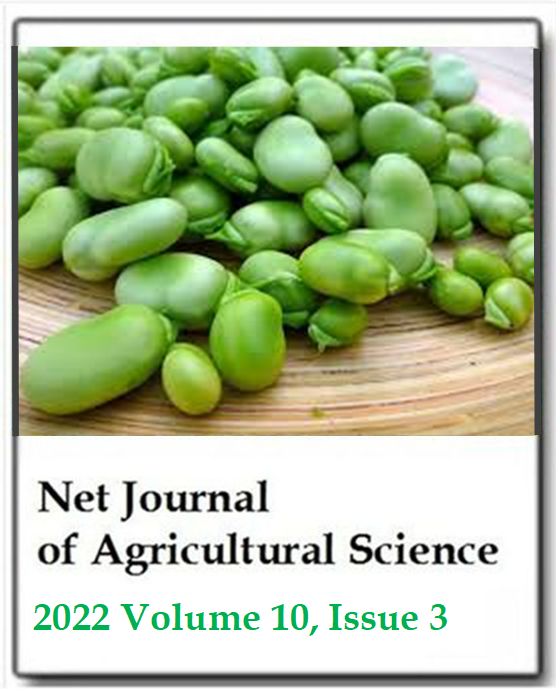Effect of host plant resistance and rhizobial inoculants on chocolate spot (Botrytis fabae) severity and yield of Faba bean (Vicia faba L.) in South region, Ethiopia
Gedyon TamiruNet Journal of Agricultural Science
Published: July 19 2022
Volume 10, Issue 3
Pages 54-58
ABSTRACT
Chocolate spot (Botrytis fabae) is one of the major diseases menacing faba bean (Vicia faba L.) production and restraining its productivity in Ethiopia. Using newly released varieties that are high yielding and tolerant to biotic stresses can increase faba bean productivity. However, the level of protection provided by the varieties has not been satisfactory. Rhizobium spp. might be used to control pathogens of legume crops when used as seed dressing. The objective of this study is to evaluate the synergistic effect of host plant resistance and use of bio-inoculants on faba bean yield and severity of the disease. The field experiments consisted of 12 treatments laid out in a randomized complete block design with three replications during the 2019/2020 crop season. The chocolate spot severity was scored (with a 1-9 scale) at the flowering and final pod filling stage when the disease attained maximum and then grain yield was recorded. Combined application of rhizobia strains reduced disease severity and increased grain yield and hundred-grain weight in all varieties compared to untreated. The lowest disease severity (30.3%) was observed with the application of a combination of rhizobia on the Gebelocho variety at Bulle. The highest yield of 3296 kg/ha was harvested from Gebelcho at Bulle with the application of a combination of rhizobia strains. The result indicated the possible use of rhizobial strains integrating with host plant resistance as an alternative means of management but further study is needed to verify actual use in agricultural production.
Keywords: Botrytis fabae, released varieties, response, Vicia faba.
Full Text PDF
ISSN: 2315-9766
